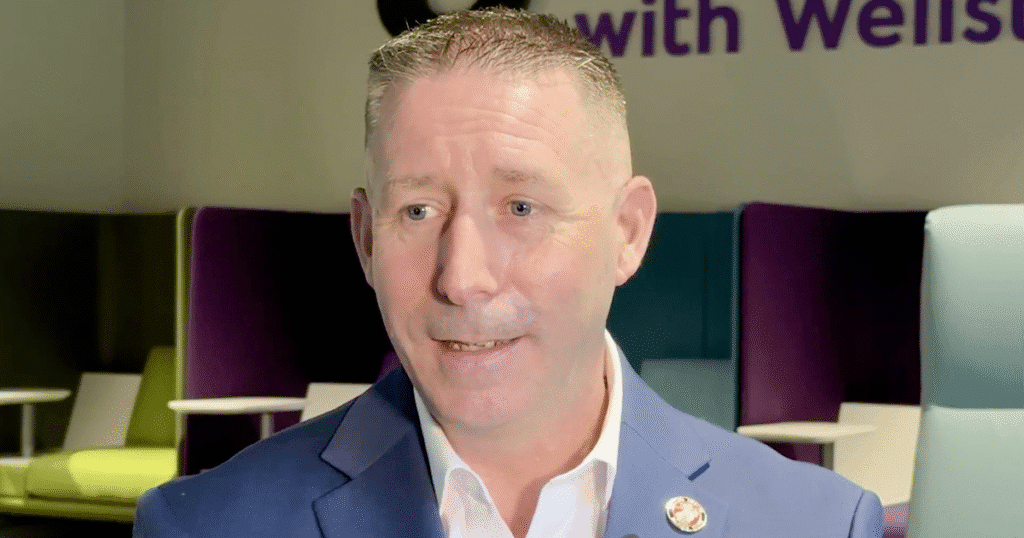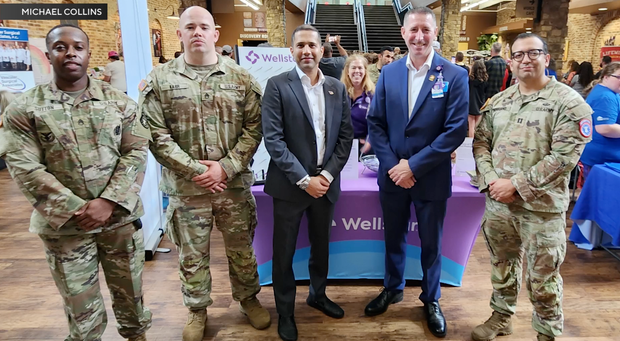Michael Collins says he always felt called to serve, even when his father urged him not to join the Marines. But years after leaving the military, he’s now part of a growing group of veterans fighting a different battle: finding meaningful work in civilian life.
When Collins left the Marine Corps, he says he struggled to understand how his military experience translated into a career.
“When I got out, I didn’t know where my skills mapped me to,” Collins told CBS News Atlanta. “Because I served as military police, I thought my only option was to go into law enforcement.”
In the early 2000s, Collins joined a South Carolina sheriff’s office. But after five years, he was burned out and missed the leadership roles he held in the military.
Everything changed after a chance encounter with a hospital medical director in Woodstock.
“He said, ‘If you ever want to change careers, let me know,'” Collins said. “I told him I didn’t have the skills or background. He said, ‘Don’t worry about it. I’ll bring you on and give you on-the-job training.’ That one person taking a chance on me changed the rest of my life.”
Collins became an emergency room technician and built a career in the medical field. Twenty years later, he’s now an executive at Wellstar Health System, and using his platform to highlight a problem he says many veterans face.
Scott Johnson, president and CEO of The Warrior Alliance, says underemployment is one of the biggest obstacles for veterans transitioning to civilian life.
“Underemployment looks like this,” Johnson said. “You may have had years of leadership or overseen millions of dollars of equipment, but you’re taking an entry-level position and staying there because there’s a ceiling to how you can use your skills or waiting for someone to realize what you’re capable of.”
According to the “Journal of Veteran Studies,” one-third of post-9/11 veterans reported being underemployed three years after leaving the service.
Johnson says underemployment also helps explain why many veterans quit their first civilian job soon after being hired. A study by the Institute for Veterans and Military Families found that half of veterans leave their first job within a year. Sixty-five percent leave within two years.
Underemployment, Johnson says, often means veterans earn far less than they made in the military and work in roles that don’t match their experience or passion.
“We meet veterans who have been out for decades and are still trying to find their North Star,” Johnson said.
Collins believes stronger support systems could prevent many veterans from feeling lost.
“I’m one of the lucky ones,” Collins said. “But so many people feel stuck. It’s one thing to hire veterans; the more important part is making sure they’re placed in the right positions.”
Now, a veteran who found his purpose later in life hopes his story encourages others to keep searching for theirs.


